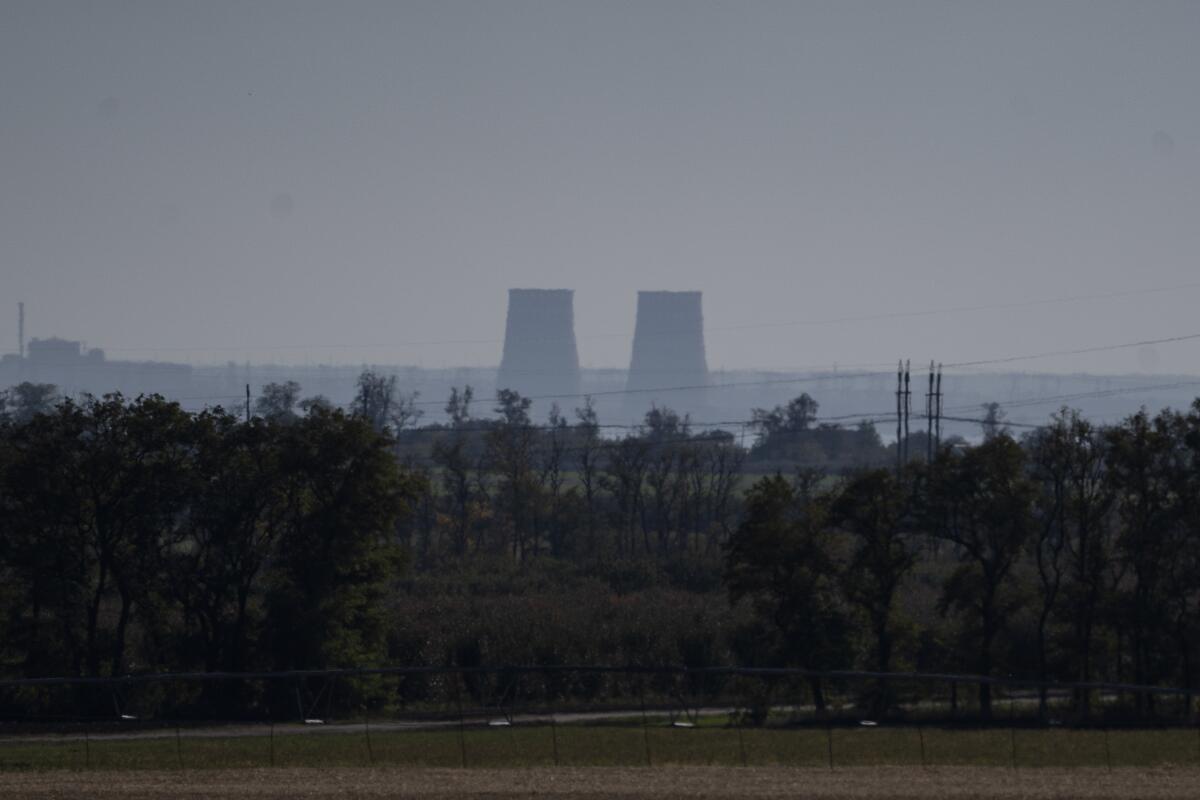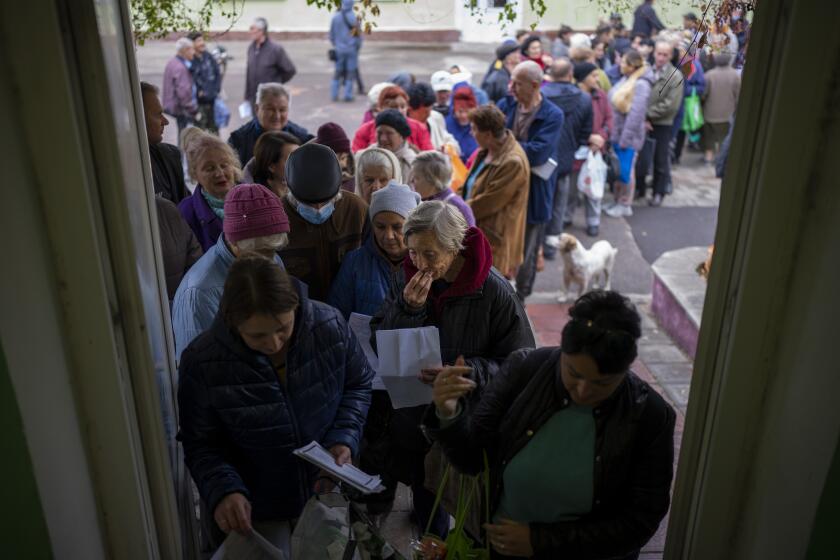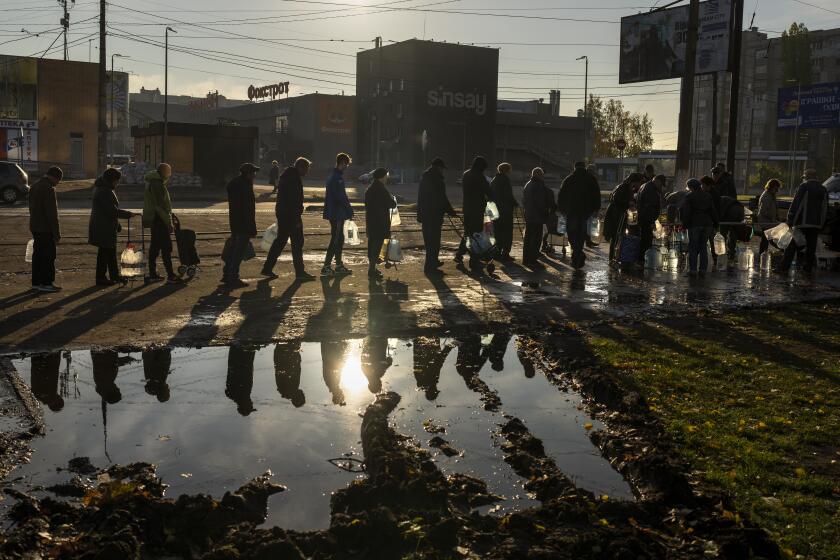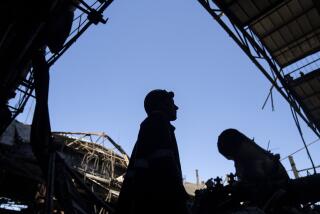Ukraine alleges Russian ‘dirty bomb’ deception at nuclear plant

- Share via
KYIV, Ukraine — Ukraine’s nuclear energy operator said Tuesday that Russian forces were performing secret work at Europe’s largest nuclear power plant, activity that could shed light on Russia’s claims that the Ukrainian military is preparing a “provocation” involving a radioactive device.
Russian Defense Minister Sergei Shoigu made an unsubstantiated allegation that Ukraine was preparing to launch a so-called dirty bomb. Shoigu leveled the charge over the weekend in calls to his British, French, Turkish and U.S. counterparts. Britain, France and the United States rejected it out of hand as “transparently false.”
Ukraine also dismissed Moscow’s claim as an attempt to distract attention from what Kyiv alleged were the Kremlin’s own plans to detonate a dirty bomb, which uses explosives to scatter radioactive waste in an effort to sow terror.
Energoatom, the state enterprise that operates Ukraine’s four nuclear power plants, said Russian forces have carried out secret construction work over the last week at the occupied Zaporizhzhia nuclear plant in Ukraine.
Russian officers controlling the area won’t give access to Ukrainian staff running the power plant or monitors from the United Nations’ atomic energy watchdog that would allow them to see what the Russians are doing, Energoatom said Tuesday in a statement.
Energoatom said it “assumes” the Russians “are preparing a terrorist act using nuclear materials and radioactive waste stored at” the plant. It said there were 174 containers at the plant’s dry spent fuel storage facility, each of them containing 24 assemblies of spent nuclear fuel.
Russian news reports say many of those called up under Putin’s mobilization of 300,000 reservists haven’t been provided with basic equipment.
“Destruction of these containers as a result of explosion will lead to a radiation accident and radiation contamination of several hundred square [miles] of the adjacent territory,” the company said.
It called on the International Atomic Energy Agency to assess what was going on.
The U.N. Security Council was scheduled to hold closed-door consultations about the dirty-bomb allegations later Tuesday at Russia’s request.
Russia asked the council to establish a commission to investigate its claims that the United States and Ukraine are violating the convention prohibiting the use of biological weapons at laboratories in Ukraine.
Soon after Moscow’s Feb. 24 invasion of Ukraine, Russia’s U.N. ambassador, Vassily Nebenzia, claimed that secret American labs in Ukraine were engaged in biological warfare — a charge denied by the U.S. and Ukraine.
Ukrainian authorities are claiming increasing success in shooting down Iranian-built drones launched by Russia to terrorize the public.
The Kremlin has insisted that its warning of a purported Ukrainian plan to use a dirty bomb should be taken seriously and criticized Western nations for shrugging it off.
The dismissal of Moscow’s warning is “unacceptable in view of the seriousness of the danger that we have talked about,” Kremlin spokesman Dmitry Peskov said.
Speaking during a conference call with reporters, Peskov added: “We again emphasize the grave danger posed by the plans hatched by the Ukrainians.”
At the White House, President Biden was asked Tuesday whether Russia is preparing to deploy a tactical nuclear weapon after making claims that Ukraine will use a dirty bomb.
“I spent a lot of time today talking about that,” Biden told reporters.
The president was also asked whether the claims about a Ukrainian dirty bomb amounted to a false-flag operation.
“Let me just say, Russia would be making an incredibly serious mistake if it were to use a tactical nuclear weapon,” Biden said. “I’m not guaranteeing you that it’s a false-flag operation yet ... but it would be a serious, serious mistake.”
Dirty bombs don’t have the devastating destruction of a nuclear explosion but could expose broad areas to radioactive contamination.
More to Read
Sign up for Essential California
The most important California stories and recommendations in your inbox every morning.
You may occasionally receive promotional content from the Los Angeles Times.












